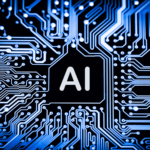Imagine a digital ledger, but one that isn’t controlled by a single bank or company. Instead, it’s like a shared record book, continuously updated and maintained by a vast network of computers all around the world. This truly is the essence of Blockchain Technology – a revolutionary digital system that records transactions across many computers, making it incredibly difficult to change or hack. Essentially, it’s a decentralized, highly secure way to keep digital records.
This innovative approach to managing data has the power to transform countless industries, from finance to healthcare. So, let’s dive deeper and truly understand Blockchain Technology and how it functions.
What Exactly Is Blockchain Technology?
At its core, Blockchain Technology uses a distributed ledger (DLT). This simply means it’s a database spread across many computers (called “nodes”) instead of being stored in one central spot. Each ‘block’ in the chain contains a list of transactions. Once a block is complete, it links securely to the previous one, forming an unbreakable ‘chain’ of information. This fundamental structure helps guarantee transparency and integrity.
Unlike typical databases, which you can often alter, blockchain is designed to be permanent. Once information gets recorded on a block and added to the chain, it’s extremely challenging – practically impossible – to change or delete it. This builds tremendous trust in digital systems, which is a real game-changer.
How Does Blockchain Technology Work? Breaking Down the Process
To truly grasp Blockchain Technology, let’s explore its core parts and how they fit together:
- Blocks: Digital Pages of Transactions Think of blocks as individual digital pages in that shared ledger. Each page (block) holds a collection of verified transactions. Once a block is filled with transaction data, it closes and waits to join the chain. These transactions can include anything from money transfers to important data records.
- The Chain: An Unbreakable Sequence Once a block fills up, it securely links to the block before it. This happens using complex digital codes called “cryptographic hashes.” This process creates a chronological chain, forming an unbreakable sequence of records. In essence, each new block holds a unique digital fingerprint of the previous block, creating a strong, tamper-proof connection. This linking is absolutely key to the system’s overall security.
- Cryptography: The Digital Security Guard Every block uses strong cryptographic techniques for protection. Each transaction, and every block itself, gets a unique digital fingerprint. This ensures its integrity and actively prevents tampering. Furthermore, if even a tiny piece of data inside a block changes, its unique fingerprint shifts. This immediately signals a mismatch across the network, alerting everyone.
- Decentralization: Power to the Network Perhaps the most revolutionary part of Blockchain Technology is its decentralization. No single entity or central authority controls the entire network. Instead, control and maintenance are spread out among all the participating computers (nodes). This design makes the system incredibly tough against attacks, censorship, and single points of failure. Ultimately, it offers a truly democratic way to manage data.
Key Features of Blockchain Technology
The way blockchain works gives it several powerful features that make it unique:
- Transparency: Because the ledger is open and shared, all verified transactions are visible to everyone on the network. While individual identities can remain anonymous (pseudonymous), the data itself is publicly verifiable. This fosters a high level of accountability.
- Security: Thanks to advanced digital coding and its decentralized nature, blockchain is inherently very secure. It’s incredibly difficult for any single attacker to compromise the entire network.
- Immutability: Once a transaction is recorded within a block and that block joins the chain, you cannot change or remove it. This provides an unprecedented level of record integrity and permanence.
- Trustlessness: The network’s consensus methods (like ‘mining’ or ‘staking’) verify transactions on a blockchain. This means you don’t need a central go-between to approve things. Consequently, this greatly reduces, or even removes, the need to trust third parties, saving both time and money.
- Efficiency: Automated processes and direct peer-to-peer interactions can streamline transactions. This often makes many processes faster and more efficient compared to older, traditional methods.
Real-World Applications of Blockchain Technology
Beyond its technical marvel, Blockchain Technology is already showing its immense value across various sectors:
- Cryptocurrencies: The most famous use! Digital currencies like Bitcoin and Ethereum totally rely on blockchain. They show how secure, decentralized money can work without central banks. You can learn more about them in our Beginner’s Guide to Cryptocurrencies.
- Supply Chain Management: Companies use blockchain to track products from their origin to the consumer. This offers incredible transparency, helps verify items’ authenticity, and actively helps prevent fraud and fake goods.
- Healthcare: Blockchain can safely store and share sensitive medical records. This gives patients more control over their data while ensuring privacy and allowing secure information exchange among authorized parties.
- Finance (DeFi): Beyond typical cryptocurrencies, blockchain helps streamline many financial transactions, from global payments to lending. It also greatly reduces fraud. Indeed, it powers the exciting world of Decentralized Finance (DeFi).
- Voting Systems: Imagine boosting election integrity and transparency by recording votes on an unchangeable blockchain. This could offer a highly verifiable and secure voting process.
- Digital Identity: Blockchain can empower people to own and manage their digital identities more securely, lessening their reliance on central identity providers.
Popular Blockchain Technology Platforms:
While Bitcoin started it all, many strong blockchain platforms exist today. Each offers unique abilities. Some well-known ones include:
- Ethereum: Famous for its “smart contracts,” which allow for programmable agreements.
- Algorand: Focuses on speed, security, and decentralization; businesses often use it for financial applications.
- Many others are constantly appearing, such as Solana, Cardano, and Polkadot. Each one pushes the boundaries of what’s possible with blockchain.
Conclusion: A Transparent, Secure and Efficient Future
Ultimately, Blockchain Technology is far more than just a buzzword. It’s a truly revolutionary innovation empowering individuals and organizations. It helps create a more transparent, secure, and efficient digital future. As its adoption keeps growing and changing, we can expect to see even more groundbreaking uses appear. This will certainly reshape how we interact with data, money, and trust in our digital world. It’s an exciting journey, and we’ve only just begun!
Last modified: July 23, 2025




